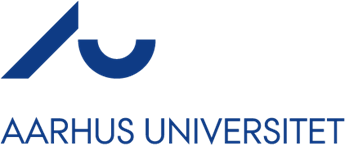Pesticides are integral to crop protection currently. However, there is an increasing demand for reducing pesticides and adopting more sustainable agricultural production due to the adverse effects of pesticides. Moreover, the need to transition to an era of reduced dependency on chemical pesticides has become more pressing because of recent legislation resulting in the removal of many active ingredients and fewer registrations of new compounds as well as the development of pathogen insensitivity. Thus, control methods such as alternative products (e.g. biological control agents, plant extracts) that are environmentally benign and not prone to develop fungicide resistance are increasingly attractive. Several alternative products have emerged in the last decade.
As yet, however, strategies including alternative products remain challenging to use due to their lower and unpredictable field performance. Thus, sole reliance on alternative products in crop protection is considered high-risk, and, at present, conventional fungicides remain essential components of disease management strategies in onion and wheat. In this project, we claim that alternative products will fail as standalone treatments, as they only act preventatively and provide control levels of at best 60%. However, there are clear opportunities to reduce the dose and application frequency of conventional fungicides by integrating tools, including alternative products, decision support systems (DSSs), and host resistance. Innovate-IPM will explore these IPM tools together with alternative products to manage septoria tritici blotch (STB) (Zymoseptoria tritici) in wheat and downy mildew (Peronospora destructor) in onions. Wheat occupies the largest share of the Danish agricultural land area, and a successful reduction in fungicide will have a wider impact.
Although a minor crop, onion is intensively sprayed against downy mildew, which is not sustainable. Moreover, there is a scarcity of active fungicide ingredients for managing downy mildew in onions, and thus the need for research to develop alternative disease control methods. Innovate-IPM will explore the key components of such an IPM strategy for downy mildew (onion) and STB (wheat) that require development and testing to enable their successful implementation in the field.
To achieve this aim, Innovate-IPM will: (1) ascertain the efficacy of various alternative products, the factors (e.g., adjuvants) that influence their efficacy as well as studies to ascertain their mode of activity (WP1); (2) screen for resistant onion varieties (WP2), (3) adapt existing DSSs used for conventional fungicides to optimize the timing of alternative products (WP3), and (4) develop and validate novel IPM strategies that include alternative products, adapted DSSs and host resistance (WP4). Lastly, a platform for effective coordination, dissemination, and data management of this project will be created (WP5). Overall, the proposed project envisages a reduction of fungicides by 50% in both crops in the short term and a further reduction of up to 65% once confidence is built.
